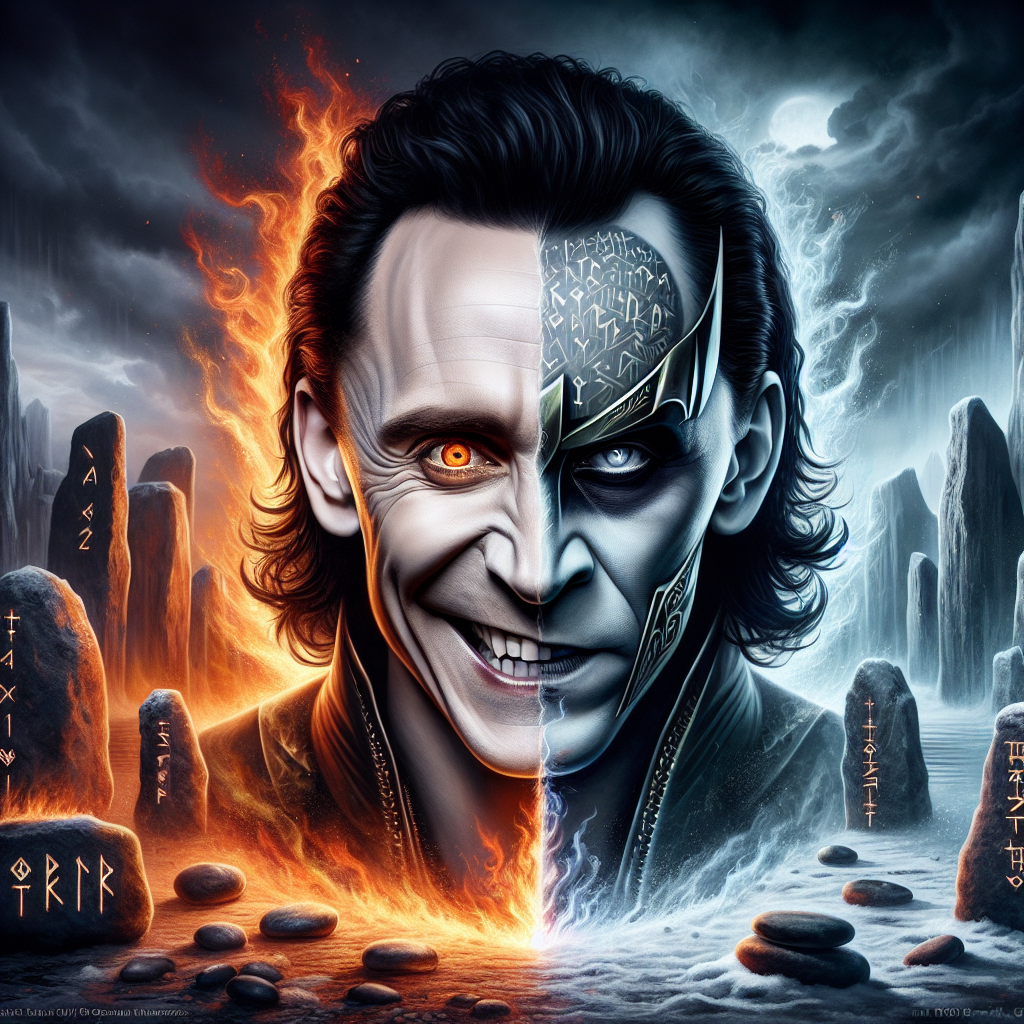The Trickster God: Exploring Loki’s Duality
In the rich tapestry of mythology, few figures are as multifaceted and captivating as Loki, the Norse god of mischief and trickery. Loki embodies a complex duality that reflects the dual nature of human existence, serving as both a friend and foe, a benefactor and a bane. His character transcends simple categorization, inviting scholars, writers, and enthusiasts alike to delve into the intricacies of his myths and the moral ambiguities they portray.
The Nature of a Trickster
Loki’s role in Norse mythology is that of a trickster, a common figure in various mythologies worldwide. Tricksters often embody chaos and subversion, acting as agents of change and transformation. They challenge the status quo, exposing the flaws and vulnerabilities of gods and humans alike. Loki epitomizes this archetype, embodying contradictions that make him both relatable and enigmatic.
At the surface level, Loki exudes cunning and cleverness. He is not bound by the traditional dichotomies of good and evil. Instead, Loki navigates the moral landscape with an agile sense of humor and irreverence, making him a compelling figure in the pantheon of Norse gods.
Loki’s Origins and Relationships
Loki’s origins are entwined with both the Aesir and the giants (Jotnar). He is often referred to as the blood brother of Odin, the chief of the Aesir. This unique parentage sets the stage for his complex relationships with other deities. He often aids the Aesir in times of crisis, showcasing his loyalty and ingenuity. For instance, in the myth of “The Theft of Idun’s Apples,” it is Loki who orchestrates the rescue of Idun, the goddess of youth, after she is abducted by the giants. In this narrative, Loki’s cleverness shines through, and he is hailed as a hero.
However, Loki’s relationship with the gods is not solely defined by his temporary virtues. His duality manifests as he transitions from helper to saboteur. The mythological context discloses a darker side to his character. In the story of Baldur’s death, Loki’s jealousy leads him to devise a scheme that results in the beloved god’s demise. This act of betrayal not only triggers a series of catastrophic events but also establishes Loki as an antagonist destined to be viewed with suspicion and animosity.
The Complexity of Duality
Loki’s duality lies at the heart of his character. He oscillates between benefactor and traitor, friend and enemy, highlighting the complexity of moral existence. His actions provoke questions about loyalty, consequence, and the nature of free will.
This duality can be interpreted through various lenses. From a psychological standpoint, Loki represents the unconscious aspects of humanity—those impulses and desires that challenge societal norms. He embodies the id, the primal instinct to seek pleasure and avoid pain. His mischief may be viewed as a reflection of our inner conflicts, exposing the darker aspects of the self that society often suppresses.
In contrast, from a philosophical perspective, Loki’s actions challenge the binaries of good and evil. He complicates the narratives surrounding morality, forcing us to confront the uncomfortable realities that sometimes, chaos and disorder can lead to growth and transformation. His acts of deception often yield profound changes in the gods and their understanding of their own limitations.
The Role of Humor
Humor plays a critical role in Loki’s character and the myths that surround him. His wit, clever remarks, and elaborate pranks provide comic relief in many tales while simultaneously driving home deeper truths about existence. The humor encapsulated within Loki’s tricks serves as a reminder of the absurdity and unpredictability of life itself.
One of the most famous tales, “The Flyting,” showcases Loki’s sharp tongue and ability to insult gods and giants alike. In this myth, he engages in a verbal contest that highlights each character’s flaws and follies, exposing the frailty of even the mightiest beings. Through laughter, Loki brings to light the imperfections of the divine, reinforcing the idea that no being is infallible.
The Journey Towards Ragnarök
Loki’s story culminates in the prophesied cataclysm known as Ragnarök, where he will face off against the gods who once welcomed him as a companion. His transformation from ally to adversary plays a pivotal role in Norse eschatology. As the event unfolds, Loki leads the forces of chaos against the Aesir, reflecting the eternal struggle between order and disorder.
This transformation highlights the darker aspects of his duality—the consequences of his actions and the inevitability of fate. Loki, once a beloved figure, becomes a symbol of betrayal and destruction, illustrating the thin line between heroism and villainy. It compels the audience to confront the repercussions that arise from unchecked ambition and deception.
Legacy and Cultural Interpretations
Loki’s influence extends beyond the confines of Norse mythology. In modern literature, film, and art, he has been reimagined as a complex anti-hero who embodies the struggle between dualities. His character serves as a canvas for exploration of themes such as identity, morality, and the nature of humanity.
In contemporary depictions, such as Marvel’s portrayal of Loki, we witness a blending of traits that allows for empathy towards a character conventionally viewed as a villain. This reinterpretation offers a fresh perspective on the nature of duality, emphasizing the internal struggles that contribute to one’s actions.
Conclusion
Loki, the trickster god of Norse mythology, is a rich tapestry of contradictions, embodying the complexities of the human experience. His duality as both a helper and a hindrance challenges us to reflect on the intricacies of morality, friendship, and the nature of existence. Through humor, chaos, and transformation, Loki remains a compelling figure whose legacy continues to resonate in contemporary culture.
In exploring Loki’s multifaceted nature, we are encouraged to confront our own dualities, acknowledging that within each of us lies the potential for both creation and destruction, mischief and wisdom. As we appreciate the trickster’s role in mythology, we also come to embrace the broader narrative of life—a dance of contradictions that shapes our understanding of who we are.





